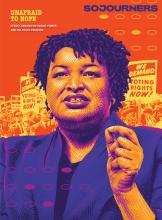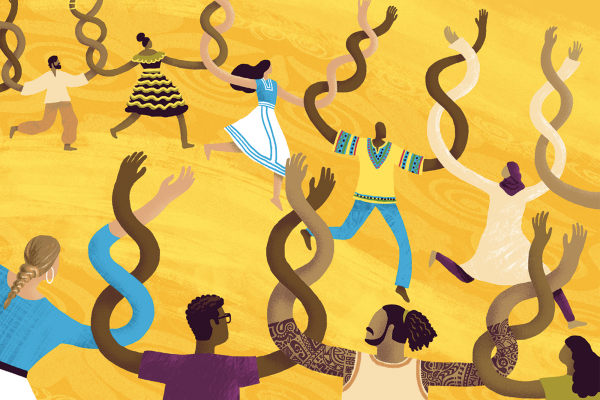EACH OF THESE reflections was written separately, not taking the others into consideration while writing each one. But as I reread them, there is a thread here. It is the thread of what it means to live faithfully together; what it means to do right by one another. Reflecting on love, accountability, economic justice, and what it means to have a righteous mind, I found myself thinking of each text in communal ways, rather than the ways I confess to typically having thought of them: “What do they mean for me, the individual?”
I am more struck by the selfishness I see, in these extraordinary times, when some people flat out refuse to do anything that they believe infringes on their individual rights. I believe that as followers of Jesus we are charged—called—to go beyond ourselves, even if we are socialized differently in our cultures or families. In addition, it is easy to settle into devotions that do not look beyond our own spiritual growth. But in these reflections, I have pushed myself to think about what it means to take in a larger view, to extend personal spiritual growth into the community. In some ways I am trying to reflect the Zulu concept of ubuntu, which indicates that a person is only human in relation to other humans. For me, by necessity, that means we must reach beyond ourselves. I hope these reflections will take you to that kind of humanity which, I believe, will deepen your faith in Christ.
September 6
The Love Debt
Exodus 12:1-14; Psalm 149; Romans 13:8-14; Matthew 18:15-20
“LOVE” IS A landmine word. It has come to mean expressions of sappy, gooey sentimentality. Because of this expectation, requiring the hard “verb” of love as a Christian commitment often gets dismissed. “Owe no one anything, except to love one another, for the one who loves another has fulfilled the law” (Romans 13:8). Every bit of the Romans text requires something more than good feelings. It calls us to examine our Christian debt. To “do no wrong” in a world where wrong stalks so many means we have to figure out how to “right the wrong.” What can it mean to “owe no one anything but love” when this nation robbed Indigenous Peoples of land and livelihood? It would be easy to say, “That was so long ago,” except the effects of that robbery extend into our present time.
It’s easy enough to name the damage, but how do we repair it? What does it mean to say, “Love does no wrong to a neighbor” (verse 10), when our trans siblings are being murdered and dismembered (as in the case of Dominique Fells in Philadelphia)? How do we provide safety? What does “Love your neighbor as yourself” (verse 9) mean in this Black Lives Matter moment of our culture, as we grapple with centuries-old sin against Black humanity? If we in fact owe one another love, then we owe one another justice, which includes repairing the damages done, individually and collectively, in community. It literally means reparation. It means doing so with an urgency, if we in fact believe “salvation is nearer to us now than when we became believers” (verse 11). For some, longing for Christ’s return can be an invitation to ignore the pain of now; but for me, it is the exact opposite. We are called to live honorably, which means to love righteously by “putting Christ on” (verse 14) and being the active love of God in the world by our deeds. Otherwise, it is not love.
Read the Full Article

